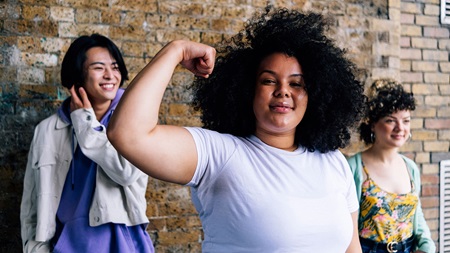Counting the costs of renting
Your money is a precious resource and when you move out it can disappear fast.
-
Deposit
You’ll need save a deposit to secure the property you want. This is usually the equivalent of a month’s rent and you’ll be asked to pay this upfront.
It doesn’t matter whether you are renting from a letting agent, the landlord directly or an existing tenant.
Landlords ask for this to cover costs if you damage their property, but you have rights as well – your deposit should be protected by law under schemes such as TDS in Northern Ireland. So make sure you get paperwork to confirm this. If the landlord unreasonably decides to hold on to some or all of your money at the end of your tenancy, you can challenge them.
-
Bills
It is a good idea to set up a separate current account to pay shared bills, and ask everyone in the house to pay their share in every month.
This is less awkward than someone personally paying the whole bill and chasing their housemates for their contributions!
Things like electricity, heating (either oil or gas) and broadband can be shared out amongst you equally, keeping costs down (plus some of these might be included in your rent already).
-
TV Licence
This one often catches people out. You need a TV license to watch television on any channel, and any BBC programme on iPlayer, even if you download it and watch it later. You also need a license even if you pay for BT, Virgin or Sky. But if you only watch videos on Netflix or YouTube, you won’t need one.
-
Contents insurance
You should also have contents insurance in case any of your possessions are accidentally damaged, or even worse, stolen. It’s a cost you might not want to pay – but put it this way – it’s much cheaper than buying a replacement!
-
Food
This might well be the first time you’ve ever held a saucepan (except for when your parents made you do the washing up) but fear not! If you’re a stranger to the kitchen, try your hand at cooking by making some simple, but nutritious dishes that could last you a couple of days, dependent on the ingredients used of course.
Swap your take-out fast food burgers for spaghetti bolognaise and your kebabs for casseroles, and you might be pleasantly surprised about how much better you feel at your efforts in cooking from scratch. Not to mention how much money you could save.
-
Personalising your pad
Most rental properties already come equipped with essential items of furniture, such as beds, sofas, washing machine, and fridge etc.
You might need to provide your own cutlery, crockery, a few towels and bed linen, but that aside buying stuff to personalise your new room can be a great deal of fun!
You could consider giving the place a lick of paint (subject to the landlords approval, which you should always get in writing), or adding some colourful cushions and other soft furnishings that bring the place to life. Always check with your landlord, though, before you reach for the roller.
One of the great things about renting is that you finally have a place of your own. So even if money's tight you can still have a social life - you can invite your family and friends around, neighbours too (assuming you've met them), and enjoy a cheap 'night in' where you can just roll into bed once everyone's gone home.



